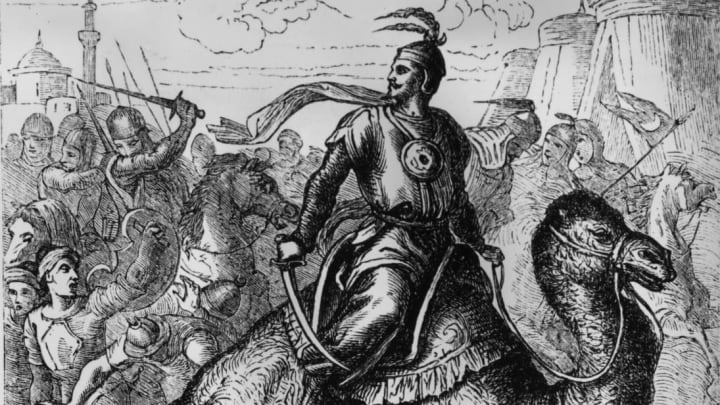Saladin, the 12th-century sultan of Egypt and Syria, was one fearless ruler. After unifying much of the Muslim world, he took on the Christian Franks at the Battle of Hattin and won, bringing Jerusalem back under Islamic rule and setting off the Third Crusade.
It wasn’t battle that did him in, though. Dr. Stephen Gluckman, a professor of medicine at the University of Pennsylvania, believes the cause of Saladin's death in 1193 was most likely typhoid, LiveScience reports.
Up until now, the circumstances of Saladin’s passing have largely remained a mystery, as is often the case with people who lived long before modern diagnostic tools were invented. Gluckman was able to reach a diagnosis by analyzing Saladin’s symptoms as they were recorded more than 800 years ago, and shared his medical opinion at this year’s Historical Clinicopathological Conference at the University of Maryland, which taps experts to diagnose a different deceased historical figure each year. In past years, some theorized that Charles Darwin’s cause of death was cyclic vomiting syndrome, and Edgar Allan Poe’s demise was attributed to either rabies or delirium tremens—“a severe form of alcohol withdrawal.”
As for Saladin, he suffered a “mysterious fever and two-week illness,” according to LiveScience. He died at age 55 or 56, despite efforts to revive him with bloodletting techniques and enemas.
Gluckman was able to rule out plague and smallpox because they tend to kill quickly, and tuberculosis and malaria didn’t fit the bill, either. Typhoid, however, was common at that time, and Saladin's symptoms seemed consistent with other cases. Caused by the bacteria Salmonella typhi, typhoid is spread through contaminated water or food. High fever is the main symptom, but weakness and loss of appetite are also typically observed.
Saladin was buried next to the sword he had carried during the Holy War, but otherwise, his burial rites were “as simple as a pauper’s funeral,” according to author Stanley Lane-Poole in Saladin and the Fall of the Kingdom of Jerusalem. The money for his funeral had to be borrowed because he had given away all his riches.
[h/t LiveScience]
